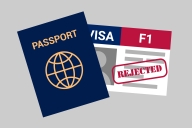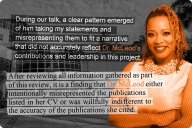You have /5 articles left.
Sign up for a free account or log in.
A U.S. District Court judge on Friday slapped down three scholarly publishers as they tried to salvage spoils from the wreckage of a four-year copyright lawsuit against Georgia State University.
Judge Orinda Evans, who in May ruled for the university in all but 5 of 99 alleged violations resulting from its library e-reserve policies, rejected a proposed injunction that would have imposed exacting guidelines on professors who wish to make portions of certain copyrighted course readings for free.
The court also ordered the plaintiffs, who were backed by the Association for American Publishers and the Copyright Clearance Center, to pay Georgia State’s attorneys’ fees. Friday’s order did not cite a specific dollar amount, but it will likely prove expensive for publishers given the duration of the case.
In the course of explaining her decision to make the publishers foot the bill for the university’s legal defense, the judge declared what observers have been opining for months: “On balance,” she wrote, “the court finds that the defendants are the prevailing party in this case.”
The case tilted dramatically in Georgia State’s favor in May when the judge ruled that the vast majority of violations alleged by the publishers qualified as educational “fair use” by university, exempting them from normal copyright restrictions.
The publishers then proposed an injunction that would bar professors from making copies that are not “narrowly tailored to accomplish the instructor’s educational objectives” or that constitute the “heart of the work.” The injunction would also have placed a greater burden on professors to “investigate the availability of digital permissions before it may determine that a proposed use of an excerpt of a work is protected by the fair use doctrine.”
Judge Evans cited four reasons for denied the injunction. She rejected the idea of a single standard that could apply to all possible cases. She took the small number of violations as evidence that Georgia State tried in good faith to comply with the law after revising its e-reserve policies in 2008 under threat of litigation. She suggested that the defendants in the case should not be held responsible for dictating “individual fair use choices.”
Finally, perhaps validating the reservations of some observers about the wisdom of taking aim at a cash-strapped public university, the judge said it was unreasonable to task public employees with policing the issue with the degree of rigor sought by the publishers.
“Georgia State’s officers and employees work at taxpayer expense to carry out their duties,” she wrote in Friday’s order. “There is insufficient reason to impose a burdensome and expensive regimen of record-keeping and report-making based on the totality of the circumstances.”
The publishers declined to immediately comment on the judge’s order. They have argued that Georgia State’s victory was not as decisive as the 95 percent compliance rate would suggest because the judge disqualified many other examples of infringement from evidence on technical grounds. Also, the publishers charged that the 99 examples that did make it into evidence occurred during a very narrow window — one semester in 2009 — after Georgia State had cleaned up its act substantially under threat of litigation.
The judge acknowledged that the publishers’ legal posturing did scare Georgia State straight prior to 2009. “On the other hand, defendants prevailed on all but 5 of the 99 copyright claims which were at issue when the trial of the case began,” she wrote. The publishers knew the court would only rule on alleged infringements that occurred under Georgia State’s revised policies and chose to pursue those claims anyway, Evans pointed out.
“Although the court does not doubt plaintiffs’ good faith in bringing this suit, and there was no controlling authority governing fair use in a nonprofit educational setting, plaintiffs’ failure to narrow their individual infringement claims significantly increased the cost of defending the suit," the judge wrote — hence the decision to make the publishers pay Georgia State’s bill.
The judge also weighed in on the publishers’ suggestion that her May ruling not apply to textbooks. While agreeing with the “thrust” of the requests, “the court believes that the term ‘textbook’ is best avoided.” However, the term did not seem to apply to any of the infringing works.
In a statement, the university declared the judge’s order a win for libraries in general. "The judge's order is a validation that the university has acted in good faith within the bounds of fair use,” said Mark Becker, the president of Georgia State, through a spokeswoman. “We are pleased to have helped set the bar going forward.”
For the latest technology news and opinion from Inside Higher Ed, follow @IHEtech on Twitter.








.jpg?itok=ShaCesee)